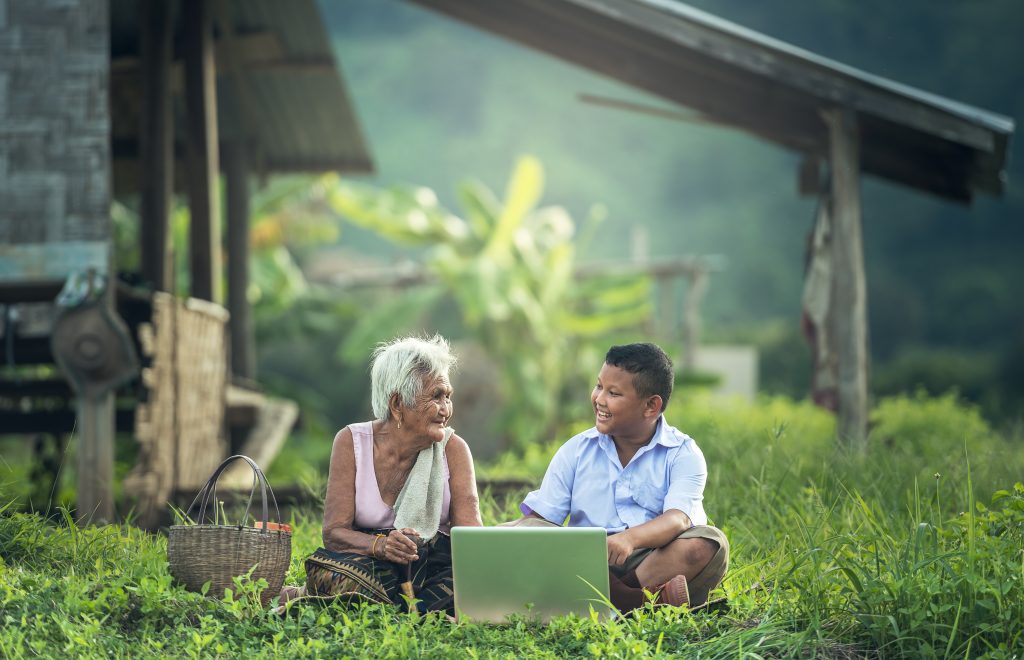In 2022, UIL marked the 70th anniversary of its foundation. Looking ahead to 2023, the Institute’s Governing Board chair, Daniel Baril, reflects on its founding mandate and its continuing relevance to the challenges the world faces today

UIL’s 70th anniversary was an opportunity to celebrate not only the foundation of UIL as an organization, but also of an educational project valuing the right to education for all and the lifelong learning perspective.
From the beginning, the UNESCO Institute for Education, as UIL was originally named, advanced foundational considerations regarding learning for all throughout the lifespan. We can read in a 1952 report of a UNESCO mission, mandated to ‘visit and study’ the newly created Institute, that:
The Governing Board and Standing Committee of the Education Institute have decided to concentrate the work of the Institute in two areas, namely pre-school education and adult education.
This report to the Executive Committee of UNESCO explained that these priorities were based:
on the belief that the problem of international understanding should be approached with a view both to the formation of a character and personality lending itself to co-operative endeavours and to the overcoming of prejudices already formed in young adults.
In other words:
in one field the effort is being directed towards the prevention of the growth of prejudices and in the other towards the eradication of prejudices already existing.
In a language of our time, we could say that UIL’s educational project, as it was originally conceived, valued a lifelong learning perspective focused on learning to be and learning to become: learning that not only helps us live together more peacefully and cooperatively but also gives us the means to act together to make a better future.
These commitments are still a source of inspiration in a world in urgent need of the transformative power of education.
In the last decade, the context of UIL’s work has dramatically changed. The impact of global warming is evident all around us. Demographic shifts – including population ageing and migration – challenge societies worldwide. The fast pace of changing labour markets creates uncertainty for workers and economies.
These trends affect all people around the world. They call for a transformation of education and learning systems and will also shape UIL’s future directions and priorities in promoting lifelong learning for all.
As UNESCO’s Futures of Education report argued, we need a new social contract for education, broadening the right to education to become a right to learning throughout life. Lifelong learning is the foundation for transforming our societies. Learning is a collective endeavour that brings people together. It enables them to gain the awareness and skills to address these common challenges, first and foremost the environmental and climate crisis.
Constructing a new social contract means rethinking our patterns of education: how we teach, learn and organize our learning. UIL supports the creation of learning ecosystems that recognize lifelong learning as a continuum of connected experiences, delivered across various locations and supported by technology.
Importantly, such a social contract must prioritize the needs of vulnerable groups to ensure that no-one is left behind. Digitalization, while bearing a vast potential for lifelong learning, also entails the risk of social exclusion. Promoting digital skills, in particular of low-literate youth and adults, will therefore be critical to ensure inclusive learning opportunities.
These efforts must also acknowledge the value of peer and intergenerational, as well as intercultural, learning. A new social contract also means not limiting the potential of lifelong learning to skills development to serve economic growth, as has been the case for too long. Instead, we need to move towards a more ecologically oriented model of education and learning, supporting the shift towards more sustainable societies and economies.
As global warming accelerates and the devastating effects of the climate crisis become increasingly evident, we need to rethink our ways of living on earth, recognize the planet’s boundaries and understand the consequences of human activity on ecological systems.
To prevent environmental collapse, we need new models of adult education which are geared towards learning to care for each other, our communities, and the planet. Such a vision also reinforces an understanding of belonging to the same humanity and the same planet, while valuing our differences and diversity. Combating climate change importantly entails developing greener economies, which in turn calls for massive investments in skills development.
Building on its prior work on green skills, UIL will further emphasize this ecological dimension in its work. In collaboration with countries and communities, UIL aims to support the development of climate action strategies for skilling, upskilling and reskilling through lifelong learning.
Given the massive global challenges and the uncertainty that comes with them, lifelong learning provides a lever for positive transformation. Therefore, we need to foster a culture of lifelong learning, and recognize lifelong learning as a human right.
All through our life, we need to learn to be and to become.
Daniel Baril is Chair of the Governing Board of the UNESCO Institute for Lifelong Learning and Director General of the Canadian Institute for Cooperation in Adult Education. This article is an edited version of a speech given at UIL’s 70th anniversary celebrations in October 2022.
